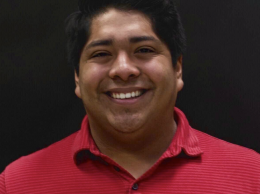InTouch readies for patent war counter punch
IN THIS ARTICLE
- Health Care & Life Science Topic
- Stephen Nellis Author
By Stephen Nellis Friday, December 14th, 2012
Goleta-based InTouch Health, a maker of telemedicine robots, plans to appeal a jury verdict that found a New Hampshire company didn’t infringe on its patents and that two of its patent claims were invalid.
InTouch sued VGo Communications in federal court in Los Angeles last year claiming that the New England company violated three of its patents related to how telemedicine robots are shared on networks and safety mechanisms used in the robots. After a five-day trial in November, a jury took less than half a day to return the verdict.
Yulun Wang, CEO of InTouch and a former UC Santa Barbara professor who holds about 80 patents, told the Business Times that he believes his company will prevail on appeal.
“They’re highly technical,” Wang said of the patents. “It’s our opinion that the jury decision was probably emotionally based rather than the correct interpretation of the law. At the appellate level, it’s reviewed by judges who know the law. We expect to do well.”
While the patent dispute itself is highly complex, the basic thrust of the conflict between the two companies is that of the pioneering incumbent versus a value-priced upstart.
InTouch, founded in 2002, largely created the market for telemedicine robots. Its robot has greater capabilities than the VGo robot and is cleared by the U.S. Food and Drug Administration to connect directly to patient monitoring machines and transmit sensitive patient data. Doctors can prescribe treatment directly over InTouch’s robot, a vital feature in emergency situations such as stroke.
The intention of the patent system, Wang argues, is to protect pioneers like InTouch for taking huge risks to create a market category. “InTouch has spent probably a good $30 million building the health-care market,” Wang said. “When you come out with a new idea, you have to educate people as to why it’s a good idea. We fund research. We fund symposiums. We fund conferences and trade shows to help build the market,” Wang said.
VGo was founded in 2007, about five years after InTouch, and delivered its first products in 2011. The company’s founders say it is simply serving a price-sensitive segment of health-care market.
Though the VGo robot cannot be used to transmit private patient data or prescribe treatment, it also costs drastically less than the InTouch robot, the company’s leaders said.
“We believe that InTouch is using this tactic primarily because we have a low price point and that’s not where they’re positioned today,” said Ned Semonite, vice president of product management and marketing for VGo. “They have a Ferrari on the market, and we have a Ford Fusion. There’s more people that can afford a Ford Fusion than the Ferrari. It meets their needs perfectly.”
Storylines like that might sway juries, but patent cases are won on the merits. Separately from the lawsuit, VGo has challenged four of InTouch’s patents at the U.S. Patent and Trademark Office. Patent regulators agreed to re-open three of those patents for potential changes, which VGo characterized as a major victory.
Wang countered that about 90 percent of such requests are granted. They are analogous to a trial judge’s early decision that a controversy does indeed exists and should argued before a court. “It is true that we have to re-argue the claims and they might shift,” Wang said. “But chances are very high that patents will spit back out the other end.”
Semonite acknowledged that the end result of such disputes at the patent office is often to narrow patents rather than completely invalidate them. But he said that in itself could open the market place to more competition.
“The main thing for us is our success in having the patent office realize that these patents are either invalid or too broad to begin with and really need to be redone if they’re going to hold water,” Semonite said. “Given the litigation you’re seeing in the press between Apple and Samsung, there’s greater scrutiny with some of the broadness of these patents.”
Be that as it may, the legal war chest often counts for much in intellectual property disputes, and InTouch has raised more capital than its younger rival and has growing revenue that reached $26.5 million in 2011.
VGo maintains that it will continue to try to narrow the scope of InTouch’s patent portfolio to allow it compete against the older firm in the market.
“We had video conference systems on carts with wheels. The only difference is that someone pushed it instead of driving it. This concept of two-way visual communication between doctors and patients has been around for years,” Semonite said. “This is a small market, and from our perspective, the more players the better.”
This isn’t Wang’s first intellectual property rodeo. He started surgical robot company Computer Motion in the early 1990s. Later in the decade, Intuitive Surgical produced a rival system and began to grow at a fast clip. Just before Intuitive Surgical went public, Computer Motion sued for patent infringement. Back-and-forth lawsuits resulted in 2003 merger that gave Computer Motion shareholders a third of the resulting company, which has a $21 billion market capitalization today.
“When you start a new field, you’re inevitably going to have some scuffles,” Wang said. “It goes through various twists and turns, and hopefully we’ll end up with the right answer.”











